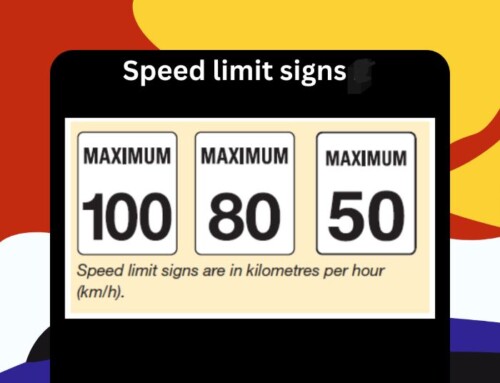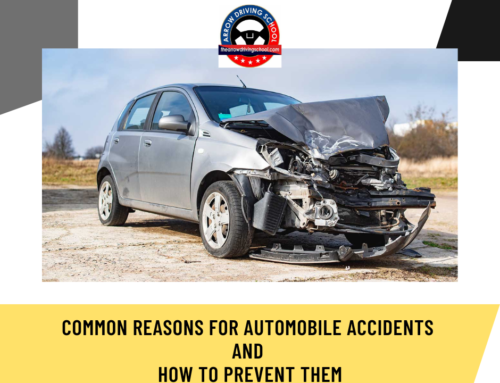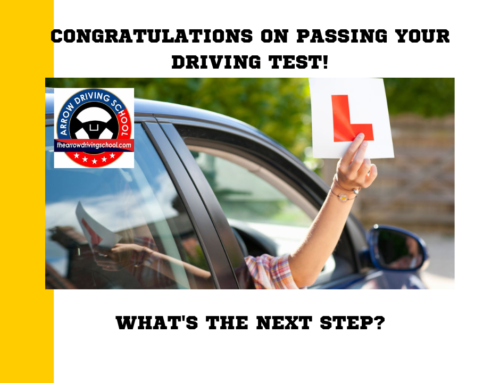Driving is a significant milestone in a teenager’s life, marking newfound independence and responsibility. As a parent, helping your teen develop responsible driving habits is crucial for their safety and the safety of others on the road. Here’s a comprehensive guide to assist parents in teaching their teenagers responsible driving habits.
1. Start with Open Communication:
- Begin discussing responsible driving habits early.
- Share personal experiences, emphasizing the importance of safety.
2. Set a Positive Example:
- Demonstrate safe driving behaviors when your teen is in the car.
- Follow traffic rules and avoid distractions to show responsible driving.
3. Emphasize the Graduated Driver Licensing (GDL) System:
- Explain the stages of the GDL system to your teen.
- Emphasize the restrictions at each stage, promoting a gradual approach to driving privileges.
4. Establish Clear Expectations:
- Set specific rules for your teen driver.
- Clearly outline consequences for breaking the rules to ensure accountability.
5. Practice Regularly:
- Engage in consistent practice sessions in various driving conditions.
- Provide constructive feedback to improve skills and build confidence.
6. Address Distracted Driving:
- Discuss the dangers of texting, talking on the phone, or other distractions.
- Encourage the use of hands-free devices if necessary.
7. Instill Defensive Driving Techniques:
- Teach your teen to anticipate potential hazards and stay vigilant.
- Emphasize maintaining a safe following distance and scanning the surroundings.
8. Educate on the Dangers of Speeding:
- Emphasize the correlation between speed and accidents.
- Encourage adherence to speed limits and adjusting to road conditions.
9. Teach Proper Seatbelt Use:
- Stress the importance of wearing seatbelts at all times.
- Set the example by always wearing your seatbelt.
10. Discuss Impaired Driving:
- Have open conversations about the dangers of alcohol and drug use while driving.
- Provide alternative solutions, such as designated drivers or rideshare services.
11. Demonstrate Parking Skills:
- Practice parking in different scenarios, including parallel and perpendicular parking.
- Share tips on navigating parking lots safely.
12. Address Road Rage and Aggressive Driving:
- Discuss the importance of staying calm and avoiding confrontations.
- Encourage your teen to maintain a positive attitude on the road.
13. Introduce Basic Car Maintenance:
- Teach your teen to check oil levels, tire pressure, and other basic maintenance tasks.
- Emphasize the importance of a well-maintained vehicle for safety.
14. Night Driving Safety:
- Gradually introduce your teen to night driving.
- Emphasize the need for increased caution due to reduced visibility.
15. Encourage a Safety Mindset:
- Reinforce that safety is the top priority while driving.
- Discuss the potential consequences of irresponsible driving behavior.
16. Discuss Peer Influence:
- Talk about the impact of peer pressure on driving decisions.
- Encourage your teen to make responsible choices, even when with friends.
17. Monitor Electronic Device Use:
- Set clear rules regarding the use of phones and other devices while driving.
- Consider using parental control apps to limit distractions.
18. Address Weather-Related Driving:
- Discuss the challenges of driving in adverse weather conditions.
- Teach your teen how to adapt their driving to different weather scenarios.
19. Familiarize Them with Local Traffic Laws:
- Ensure your teen understands and follows all traffic laws.
- Discuss specific local regulations and nuances.
20. Encourage Continued Learning:
- Suggest additional defensive driving courses for ongoing skill development.
- Stay involved in your teen’s driving education even after they obtain their license.
Conclusion:
Teaching teenagers responsible driving habits is a gradual process that requires open communication, setting clear expectations, and providing consistent guidance. By instilling good driving practices from the start, parents play a crucial role in shaping responsible and safe drivers. Remember, the ultimate goal is to empower your teen with the knowledge and skills to navigate the road responsibly, ensuring a lifetime of safe driving habits.
Arrow Driving School provides approved driver education that goes beyond the basics, offering comprehensive training that ensures not just passing a test, but instilling lifelong responsible driving habits. With a focus on safety, confidence, and skill development, our program benefits both students and parents, providing peace of mind knowing that the next generation of drivers is well-prepared for the road ahead.






